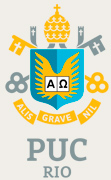Vol. 16, Nº 1, 1994
A Guerra Fria e seu Fim: Conseqüências para a Teoria das Relações Internacionais
O autor discute neste artigo as principais conseqüências que o fim da Guerra Fria trouxe para a teoria das relações internacionais. Fred Halliday

Resumo
O autor discute neste artigo as principais conseqüências que o fim da Guerra Fria trouxe para a teoria das relações internacionais. Partindo do princípio de que o colapso do bloco soviético representa o terceiro marco fundamental do século XX, o autor aponta as questões mais relevantes que devem ser incorporadas na tentativa de superar o paradigma realista dominante no estudo das relações internacionais. As transformações nas relações entre as grandes potências, o fim do comunismo, as mudanças nos padrões de relações interestatais e a expansão internacional da democracia são tópicos abordados teórica e historicamente, visando uma melhor caracterização do mundo pós-Guerra Fria.

The Cold War and its Conclusion: Consequences for International Relations Theory
Abstract
This article attempts to draw a better understanding of the world after the Cold War. The author discusses the main consequences that the end of the Cold War has brought to the theory of international relations. By taking as a starting point the idea that the collapse of the Soviet bloc represents the third fundamental breakthrough of the 20th century, the author points out the most relevant questions which must be incorporated in an attempt to overcome the realist paradigm, which has been dominant in international relations. The significant change in the relationship between the super-powers, the end of communism, changes in the patterns of inter-states relations and the expansion of international democracy are some of the topics discussed, from a theoretical as well as on historical point of view.

A Guerra Fria e seu Fim: Conseqüências para a Teoria das Relações Internacionais
 Instituto de Relações Internacionais
Instituto de Relações InternacionaisRua Marquês de São Vicente, 225 - Vila dos Diretórios, Casa 20, Gávea - Rio de Janeiro - RJ, Brasil
Tel/Fax: +55 21 3527-1557 3527-1558 3527-1560

